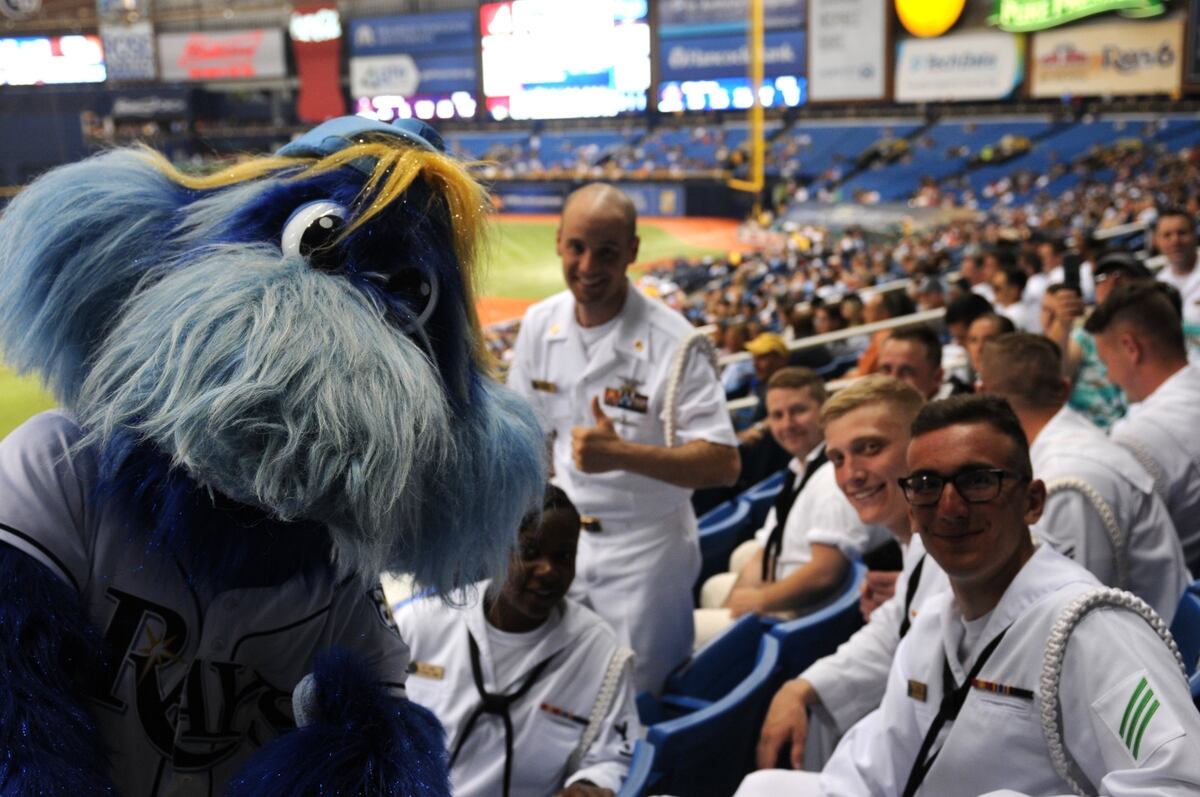A military softball tournament at the All-Star Game. Veteran tributes. Surprise military family reunions. Camouflage uniforms. Checks to charities.
At face value, Major League Baseball loves veterans and military families. The league appears to check the right boxes, until you dig deeper, which is what I did as one of the few post-9/11 veterans employed in MLB.
I love baseball. I grew up around the sport and played through college. I always dreamed of working in a front office, but delayed that pursuit until after serving in the Marine Corps. I never imagined that I would eventually walk away from baseball, pushed out for standing up for myself and all veterans and military families. I was turned into a pariah by an institution that glorifies veterans in public while failing them miserably in private.
My personal wake-up call came when I was assistant director of player development for the Los Angeles Dodgers. I informed my boss, Gabe Kapler, now manager of the Philadelphia Phillies, that I was going to get a traumatic brain injury screening for recurring morning headaches.
This simple notification spiraled out of control. I was called a “damaged veteran,” and urged to take a leave of absence. When I wouldn’t leave on my own, I was pushed out.
It took seven months for MLB to conduct an investigation, which turned out to be a sham, with the results never being shared. I turned down a settlement, recognizing that I would be shut out of baseball and wouldn’t be able to help other veterans.
Despite this dispute, I was hired by the New York Mets and encouraged to help MLB better serve veterans and military families by improving their programs. I took this charge seriously, proposing initiatives that would improve MLB’s support for a community it claims to care about. It was only when I experienced pushback on low-cost, high-value proposals that I realized the crass and cynical commercialism of the league overshadows efforts to genuinely support the veteran and military communities.
While I don’t see widespread malice across MLB front offices ― and players are often very supportive of veterans ― there is a dangerous combination of apathy and ignorance that has caused MLB to fail miserably in employing veterans and engaging meaningfully with military families.

When it comes to the MLB’s employment of veterans, the numbers speak for themselves: In 2017, MLB boasted of having 10 veterans in a workforce of approximately 5,000 across team and league offices. The league has existing mechanisms in place, including diversity programs, that could increase the number of veterans working in baseball, but MLB has ignored numerous suggestions to modify these programs to include veterans.
Rather than take simple action, the league instead advanced a bizarre, unsupported narrative that there were “closeted” veterans across baseball who refused to reveal themselves.
I have counseled dozens of veterans who wanted a fair shot at a career in baseball, only to find the door slammed in their face.
Some shared stories of outright discrimination, with teams ending interviews over concerns about their ongoing military service. Other veterans with impressive resumes were baffled when they couldn’t get an interview for a job they were overqualified for because they didn’t “have relevant experience” in the eyes of the recent college grads screening their resumes. While many American employers compete for high-performing veterans because they see the value to their bottom line, MLB treats veterans as a problem to be handled out of sight until they are trotted out for the sake of patriotism.
MLB’s true motives are most apparent when it comes to Memorial Day. Despite being criticized for callously exploiting Memorial Day in 2017 to sell apparel, MLB officials refused to acknowledge they were missing the mark in 2018, insisting it was merely a “messaging issue.”
In their eyes, the real problem was that they were criticized, not that they exploited the memory of fallen troops to sell apparel. MLB officials refused to answer questions about the amount donated from each item sold or where the money went. Even more troubling, MLB rejected efforts to pay tribute to individuals in a more meaningful way.
I expect MLB will respond by noting that I was fired by multiple teams; they said as much when pressuring me to leave quietly. And that’s true. I was fired most recently by the Mets in June for criticizing MLB’s lack of transparency and engagement around Memorial Day 2018.
The Mets told me that I did a tremendous job for the organization, but that my comments were “not compatible with a career in baseball.” My real crime in the eyes of MLB was standing up for the right of veterans to be more than just figureheads for our national pastime. The truth was inconvenient and I was a liability.
MLB has no legal obligation to support service members, veterans and military families. But by choosing to utilize veterans and military families for commercialized patriotism and financial gain, the league incurs an ethical and moral obligation to align words and actions.
For years, MLB has ridden on the coattails of veterans to please its fan base; now the league needs to evolve internally to actually benefit veterans and military families. It’s not too late. While my tenure with MLB is done, the league can still do the right thing by truly opening its doors to veterans and military families.
Nick Francona is a Marine Corps veteran who led a scout sniper platoon in Afghanistan. From 2014-2018, he worked in the front offices of the Los Angeles Angels, the Los Angeles Dodgers and the New York Mets.
